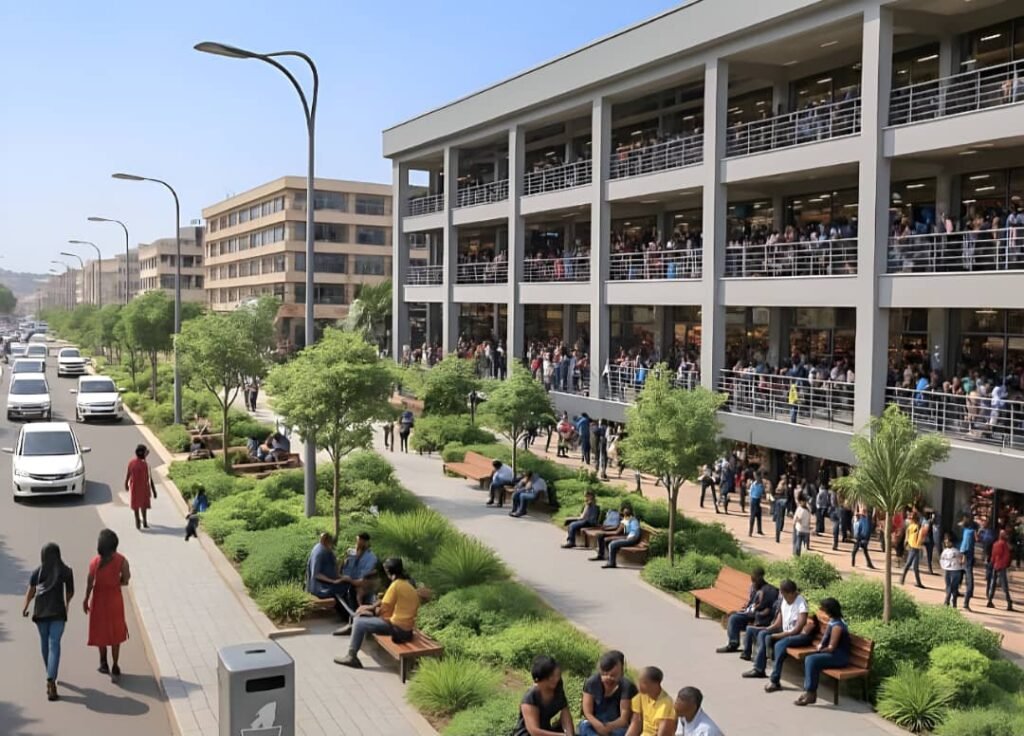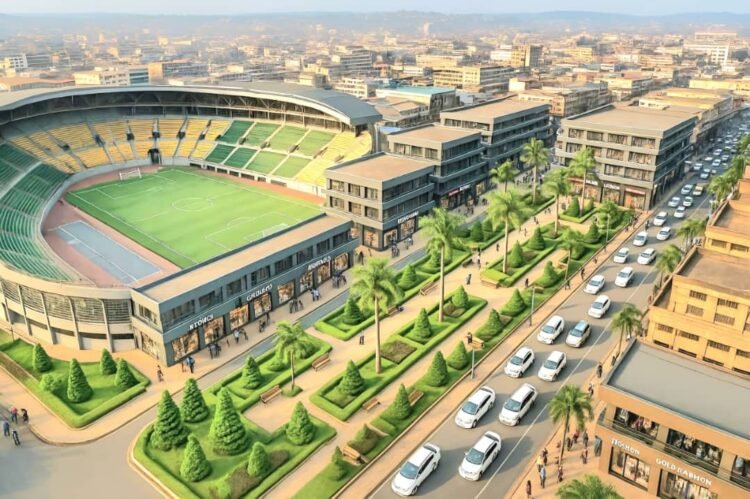Kampala’s most pressing drainage challenge, the Nakivubo Channel is undergoing a historic transformation through a partnership between city businessman Dr. Hamis Kiggundu (Ham), the Kampala Capital City Authority (KCCA), and with guidance from Confederation of African Football (CAF) and African Nations Championship (CHAN) inspection teams.
For decades, the channel, which snakes through the city’s central business district, has been synonymous with flooding, pollution, and safety risks. Now, authorities say the redevelopment will turn it into a modern, eco-friendly corridor designed to protect Kampala from seasonal floods while reshaping the city’s landscape ahead of Uganda’s hosting of the Africa Cup of Nations (AFCON) in 2027.
CAF officials, during recent inspection visits, praised the project’s progress, noting that bringing the channel up to international standards is critical for the capital’s readiness to host Africa’s premier football tournament. Their recommendations have since been factored into the implementation plan, ensuring the upgrade meets both environmental and infrastructural benchmarks.

KCCA, which is providing technical oversight, said the collaboration between private and public sectors represents a new chapter in Kampala’s urban management.
“The partnership with investors like Hamis Kiggundu is exactly what the city needs to tackle long-standing challenges. This project is not just about AFCON, but about leaving a lasting legacy of safety, beauty, and functionality for Kampala residents,” a KCCA official said.
Ham, who is financing the redevelopment, described the initiative as both a patriotic duty and a community investment.
“Nakivubo Channel has for too long been a source of floods, insecurity and even loss of life. This redevelopment is about giving Kampala a clean, safe and modern urban drainage system. It’s a responsibility we owe our people, and a statement that Uganda is ready for the future,” he said.

Once complete, the project will feature underground flood-control chambers, solid waste filtration systems, pedestrian walkways, and landscaped green spaces. What was once an urban scar will be reborn as a model of smart city design, a functional and attractive corridor supporting business, tourism, and community life.
The Nakivubo Channel redevelopment has already been hailed as a model of self-driven development, relying on local investment rather than foreign aid and setting a precedent for how African cities can take charge of their own transformation.




























